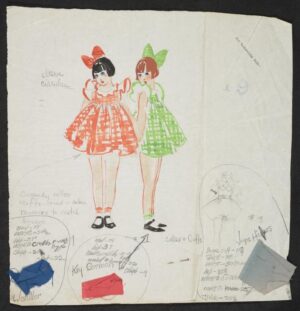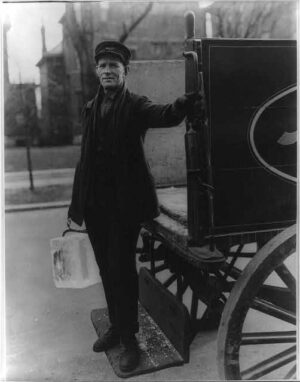Southern Legitimacy Statement: [NC resident] for 32 years. From a young age, I attended an Independent Baptist church on the outskirts of Charlotte, NC, and was educated in the church’s Christian school, which influenced my writing by exposing me to the contradictions and earnestness of the Southern Evangelical community.
An Honest Life
Harry Sr. steered the boat back in and docked it at the public landing. Harry Jr. tossed the fishing poles onto the dock and grabbed a bucket half filled with bullhead catfish.
“I promise, it’s the honest way,” said Junior.
Senior pulled the red baseball cap down tight as a gust of wind whipped off the water. He nodded as he walked up the boat ramp to the parking lot. The sun hovered above the western treeline. Senior used his salt chapped fingers to count the hours of daylight left. He held them up to the horizon like he was blocking the light from his eyes and counted:
One. And a half.
They’d get back home in time to try out Junior’s idea then cook the fish as an early dinner.
“Stay with the boat and I’ll get the truck,” said Senior.
He backed the truck, a beat up red Ranger with a rickety metal trailer, to the landing and loaded up the boat.
“I promise,” said Junior, “you’ll get a kick out of this. Honest to God.”
He’d let Junior drive to the landing and had to adjust the mirrors and seat back to his height. The radio was turned down low but played a pleasant twang that made him think of his highschool days. Senior pulled out of the parking lot and cranked the truck until it was barrelling at more than a few miles over the speed limit, the rough road jostling the old axle as he sped across one pothole after another. Junior rolled down the passenger window and took off his hat, revealing a tangled mess of light red curls cropped tight on the sides so that he looked to Senior like a pencil top.
“Where’d you get the idea from, anyway?” asked Senior.
“I saw a video of it,” replied Junior. “It’s supposed to be more humane and they taste better because of it.”
Senior nodded. He remembered when fish were fish. But times change, and he saw himself change as the times saw fit. He knew the ebb and flow of life like the ebb and flow of the river as it wound its way to the sea. His grandfather had taught him that. Whatever his son wanted to try, he’d try it, too.
“As long as you clean up the station,” said Senior, “you can show me.”
“Promise I will,” said Junior over the sound of the wind as it roared through the open window.
Senior turned up the radio as they drove along the thin stretch of highway, away from the river, and into a thick pine grove that curved along the shore. He’d lived here his whole life, among the sea pines and along the sea river. His father had, too. And his grandfather. It went on and on like that, back and back, until it was only some kid from England who decided to take up the offer to start a farm in the Colonies.
As he turned left into the long gravel driveway leading to their house, Senior couldn’t help but admire Junior: his squinted, salt creased eyes mirrored his grandfather’s. His jaw was smooth and collapsed down to his neck, creating the illusion of an absence of a chin. Senior had that, too. So did his father, and his father’s father. That women ever married them, his grandfather would say, was a blessing from the good Lord Jesus himself.
“I’ll get the bucket,” said Junior.
Senior parked by a small shed with a lean-to awning. Underneath was a porcelain sink beside a stainless steel tabletop attached together with rusted nails and thin slats of gray wood. Past the soybean fields and a small victory garden lay a modest ranch style house painted bright white. The sun wasn’t far above the weathervane that creaked slowly back and forth in the quiet bursts of wind coming off of the sea.
“My father would put them on ice and they’d die on the drive,” said Senior. “They was–were–the freshest then.”
“You gotta watch those were’s,” said Junior, lugging the bucket of fish under the awning.
Senior chuckled to himself. His father said so many “grammatically incorrect” phrases in so many seconds that it’d make Junior’s head spin. Ain’t. Thunk. Snuck. if he’d ever had the chance to meet him the was’ and the were’swould have been the least of his worries.
“This is what I was telling you,” said Junior. He grabbed a flopping, big headed bullhead catfish and smashed it against the countertop. “It’s the honest way to kill them.”
Senior lurched back at the sudden crash.
“You don’t have to beat the thing to death,” he said.
“I’m not going to beat it to death,” said Junior. “Can I use your fillet knife?”
Senior removed a six inch knife from the brown leather sheath on his belt. He grabbed the thin blade carefully and extended the handle to Junior.
“You aren’t planning to kill it alive, are you?” asked Senior.
Junior took the knife and, without answering his father, slid the blade through the soft neck of the catfish. Senior watched as the shiny black body writhed under Junior’s hand. He watched as the blood poured down the drain of the porcelain sink, leaving a syrupy red ring along its sides.
Senior hadn’t seen anything like that before. He and his dad would wait until the fish were dead to fillet them. But his son began filleting the catfish even before all the blood had drained out of its fluttering body. He was open to new things, he told himself, but something about this didn’t feel right.
“Where did you learn to do that?” he asked.
“I told you,” replied Junior, “I saw a video. It’s supposed to be the most humane way to kill them.”
“How is that humane?” Senior asked, shocked at the emotion behind his words. “You had to hold it as it fought back.”
“It’s more humane than putting it on ice and letting it suffocate,” replied Junior, sliding the fillet knife along the skin of the headless fish.
Senior couldn’t argue, he didn’t know how to argue, against his son’s point. He’d been wrong before. He was only human.
Junior grabbed another bullhead from the bucket and repeated the process of beheading, draining, and filleting the fish as it wriggled and bucked its way out of life. Junior concentrated on the process, repeating it again and again until there was one fish left.
“Now you try,” he said, extending the fillet knife to Senior.
Senior had killed many fish in his life. His whole family had farmed the same stretch of river ever since they settled its banks. Together they must have been responsible for millions of dead fish. Caught. Killed. Filleted. Eaten. Repeated. But he had never filleted a fish alive.
A rush came over him like a new tide. As much as he wanted to support his son, something prevented him from taking a step toward the knife.
“I’m sorry,” he said.
“C’mon,” said Junior. “It’s way better than letting them sit on ice in the truck bed all day, getting old and slimy.”
“We never had trouble with that,” he replied. “They was always fresh.”
“They were always fresh,” corrected Junior. “And I promise you they weren’t. Not like these.”
Senior took off his cap and held the frayed brim between his chapped fingers. He saw the bullhead on the tabletop whip its tail back and forth, gasping for breathable air under Junior’s bare hand. Its eyes were getting glassy. He knew it’d be dead soon from suffocation anyway. But, still, the thought of its life ending as a cold blade slid its spine from its flesh made Senior’s blood rise.
“How could you do something like this?” he asked, feeling his face turn red.
“It’s more humane,” replied Junior cooly. “It’s the honest way. You have to try.”
“But they’re alive,” he said, gripping his hat tighter. “They’re trying to get away from you as you hold them down and gut them alive.”
“I told you,” said Junior, “it’s better than the way you do it.”
Senior shook his head, slapped on his hat, and turned toward the house.
“I’m just trying to live an honest life,” Junior yelled as his father stomped past the soybeans.
Senior walked to the front door and didn’t look back as Junior finished filleting the final bullhead. He stepped inside and placed his hat on the back of his recliner before he took off his boots and sat down.
An honest life was laid out in front of him, in the shellacked bass above the fireplace mantle and the antique oars crossed against one another above the archway into the kitchen. An honest life is what his father had, his grandfather had. An honest life was hitched to the back of his truck. An honest life was in the chipped white bucket that carried the fish home.
Senior sat back in his recliner and looked at the ceiling, the tawny cedar illuminated in the evening light. When he closed his eyes he saw clearly the bullhead on the countertop, writhing under his son’s hands. He saw the knife slide through the neck, the streams of blood undammed at the first cut. He saw himself stand there as Junior dangled the headless fish above the sink. He was holding his cap in his hands as he watched the final drop of blood drain from the bullhead’s lifeless body.







